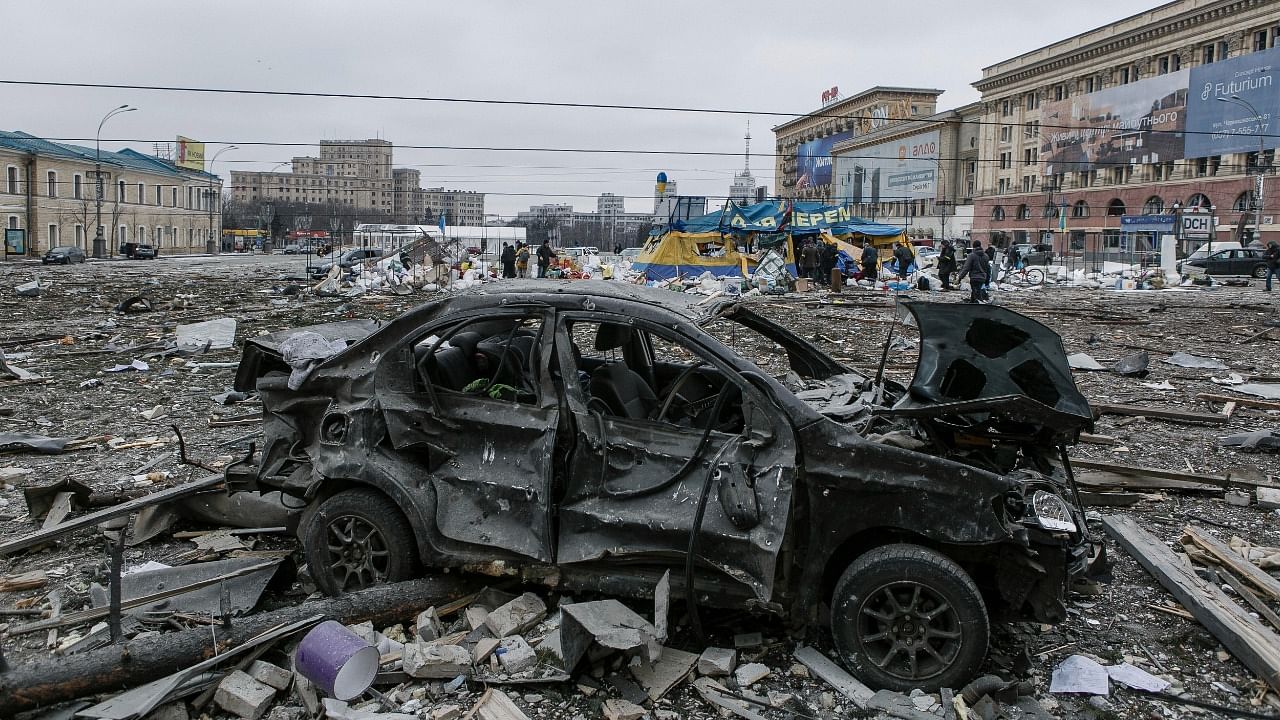
Russia’s invasion of Ukraine has left India’s traditional balancing act between Moscow and the West looking wobblier than ever, with experts saying New Delhi has few good diplomatic options.
Last week India abstained on a UN Security Council resolution deploring Russia’s “aggression” against Ukraine, winning praise from Moscow for its “independent and balanced position”.
But while New Delhi hoped this would be seen as neutrality, in many capitals its failure to condemn the invasion was taken as de facto backing of Moscow that gave President Vladimir Putin useful diplomatic cover.
Rupee-ruble trade pact
And India is also reportedly looking to bolster its rupee-ruble trade pact with Moscow, potentially undermining Western efforts to isolate Russia from the global financial system.
The crisis has left India facing a dilemma: it leant towards the Soviet Union during the Cold War -- while Pakistan was in the Western camp -- and their close relations outlived the fall of the Iron Curtain, with Moscow still by far its biggest arms supplier.
Also read: Death of Karnataka student prods Modi govt to prioritise evacuation of Indians from eastern Ukraine
At the same time it needs Western support to contend with Xi Jinping’s increasingly assertive China: Beijing is extending its reach into the Indian Ocean, and the two countries had a deadly border clash in 2020.
Together with the US, Japan and Australia, India is also a member of the “Quad Alliance” which is seen as a bulwark against China.
Its decision to abstain at the Friday Security Council vote left it alongside only Beijing and the United Arab Emirates, while Russia vetoed the resolution.
“There are not many choices that India has,” said Nandan Unnikrishnan of the Observer Research Foundation.
It “has as much investment in a relationship with Russia as it has in maintaining a relationship with the United States”, he told AFP.
Yashwant Sinha advises Modi to step in as mediator
Former external affairs minister and TMC leader Yashwant Sinha on Tuesday said Prime Minister Narendra Modi has a chance to be a “Vishwaguru” (world leader), if he successfully mediates in the Russia-Ukraine conflict.
Modi has good relations with Russian President Vladimir Putin and he can play a significant role in ending the ongoing six-day-old war with Ukraine as it is badly affecting the global economy, Sinha said.
“It is a big opportunity for Modi to become a Vishwaguru if he utilises his good relations with Putin and convinces him to end the war at this juncture as (otherwise) this conflict will continue and ruin the global economy,” said Sinha.